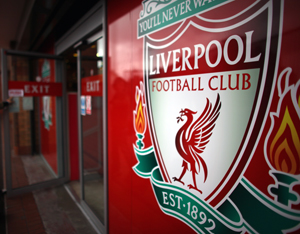It’s been almost two years since Tom Hicks and George Gillett lost their grip on Liverpool Football Club, contending that a runaway board sold the team out from under them to the Boston Red Sox ownership group for a below-market price.
Last week, that contention saw its first light of day in a U.S. courtroom, and the presiding judge appeared sympathetic to the argument that the sale had been pushed through by the team’s top creditor, Royal Bank of Scotland, without sufficient openness.
 |
Mill Financial says it offered to buy the club for 100 million pounds more than what was accepted.
Photo by: GETTY IMAGES
|
“Ultimately what happened was RBS got up one morning and agreed to the sale of Liverpool Football Club to the Red Sox and … just for the amount of money owed to RBS,” said New York Supreme Court Judge Eileen Bransten, after listening to arguments on whether to dismiss a complaint brought against RBS by Mill Financial, one of Gillett’s lenders.
The case would not unravel Fenway Sports Group’s purchase of the famed EPL club — Fenway Sports Group was known as New England Sports Ventures at the time of the deal — but it could bring to trial what Hicks and Gillett desperately and futilely contended in British courts in October 2010: that the sale had been underhanded and completed at a far-below-market price.
Mill in 2008 lent Gillett $70 million secured by his interest in the team, joining RBS and Wachovia as creditors to the club. Mill wants RBS to repay the loan plus interest, and potentially the lost opportunity of buying Liverpool.
At the heart of Mill’s claim is a tri-party lender agreement the three banks had signed to keep each apprised of developments as Hicks and Gillett struggled to make payments on the loan. Mill maintained that in April 2010, RBS secretly, and so in violation of the lender agreement, agreed to a loan extension only after Hicks and Gillett let RBS appoint a new board chairman, place two observers on the board, hire Barclays Capital as an investment bank and agree to a sale.
Using his fingers to mock the phrase “independent board,” Paul O’Connor of Kasowitz, Benson, Torres & Friedman, Mill’s counsel, contended RBS controlled the whole process and, as a result, Mill has not been paid a penny on its debt.
RBS attorney Marshall Fishman of Freshfield Bruckhaus Deringer countered that the board was independent because RBS did not have a single seat on it. To that, Bransten countered she had been around long enough to know that control came in many guises.
Fishman, after persistent questioning from Bransten, conceded, “of course RBS put conditions on [the loan extension].” RBS contends Mill was not disadvantaged by not learning of the side agreement between RBS and the new board, though, because Mill found out about it several months later.
O’Connor said that was too late and claimed every effort Mill made to stop the sale, make its own offer, or refinance the debt was deemed too late and rebuffed by the board.
“We offered to purchase the club for 100 million pounds more than was accepted,” he said.
At the time of the 235 million-pound sale, the currency exchange rate valued the sale in dollars at around $370 million. A 100 million-pound increase would have added about $158 million to the total, for a $529 million sale.
Mill is controlled in part by Virginia homebuilder Dwight Schar, a limited partner in the Washington Redskins.
There were moments of levity in the hearing, like when Bransten, clearly unfamiliar with the English Premier League, referred to Liverpool as “Livenstin” before quickly correcting herself. She added that if the team were the New York Giants, she would know more.
After the hearing, Fishman said Bransten could take several months before deciding whether to dismiss the case or let it proceed.




